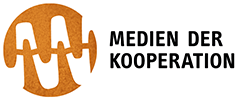Upcoming Events
Thu. 07 November 2024 - Fri. 08 November 2024
Conference: Machine. Body. Space. - The Accomplishment and Entanglement of Human and Non-Human Sensing
Read more
Conference: Machine. Body. Space. – The Accomplishment and Entanglement of Human and Non-Human Sensing


